This month, we bring the key cyberpsychology concepts used in VR Therapy to you. Enjoy!
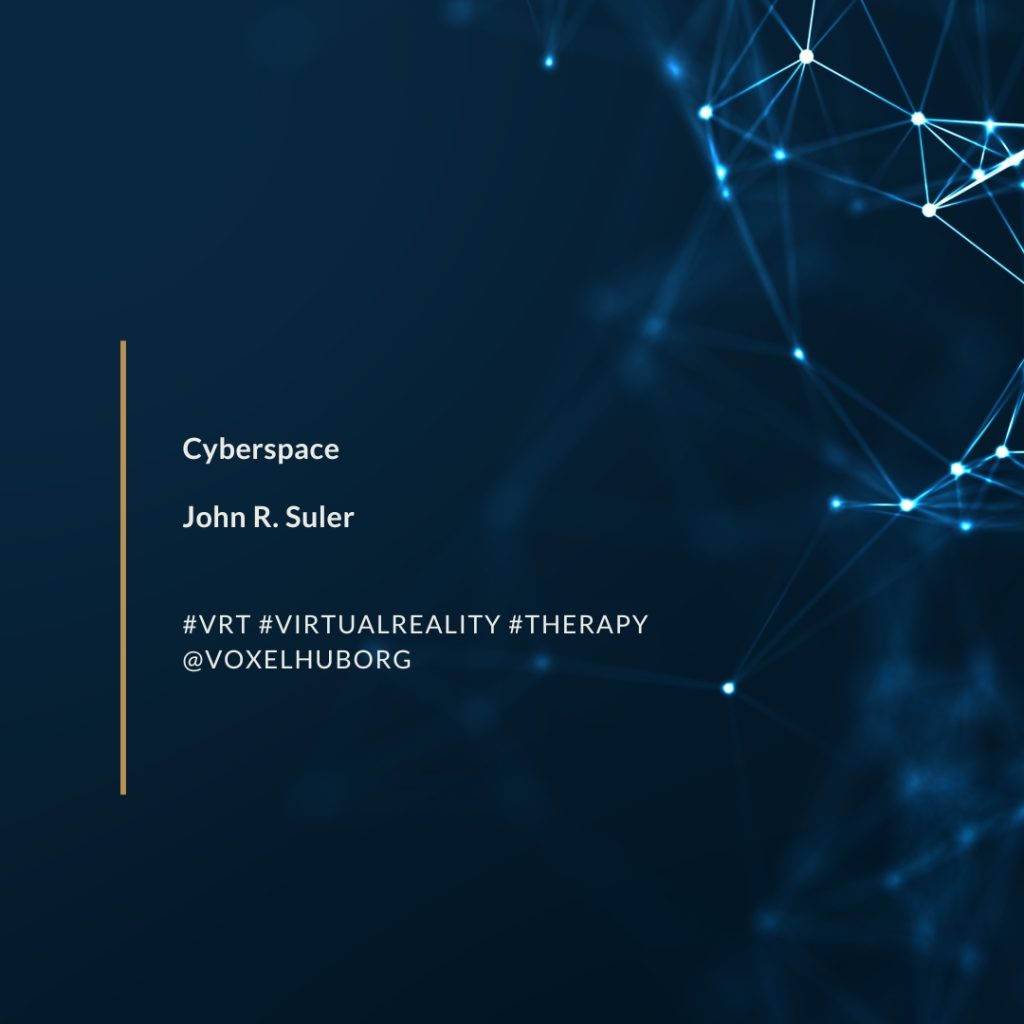
Cyberspace – “On an even deeper psychological level, users often describe how their computer is an extension of their mind and personality – a “space” that reflects their tastes, attitudes, and interests. In psychoanalytic terms, computers and cyberspace may become a type of “transitional space” that is an extension of the individual’s intrapsychic world. It may be experienced as an intermediate zone between self and other that is part self and part other.” – John R. Suler, “The Psychology of Cyberspace”, 1996, https://www.johnsuler.com/pdfs/psycyber.pdf
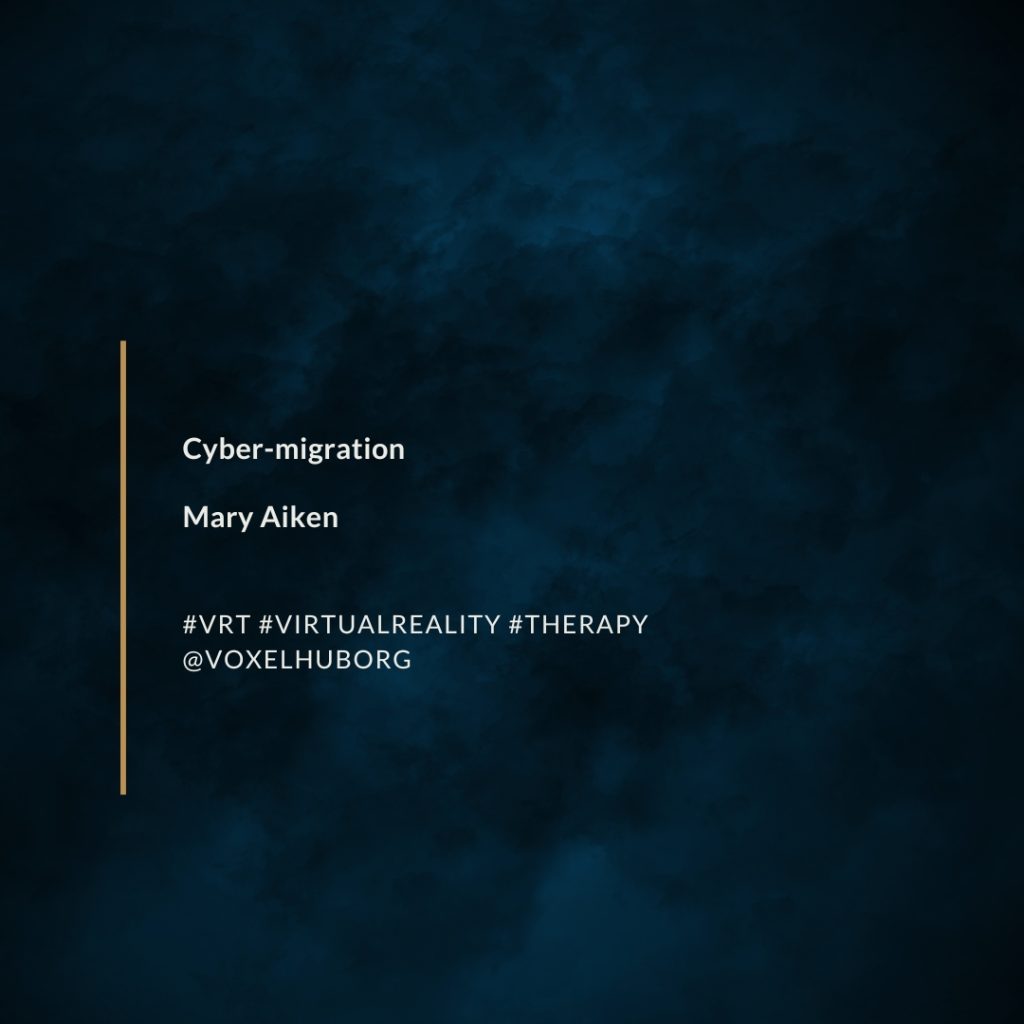
Cyber-migration – “Cyberspace is a distinct place.[…] Cyber is not just a transactional medium for things like passively viewing television or making a phone call. It is highly interactive, highly engaging and attractive to humans.” “Once behaviour mutates in cyberspace, where a significant number of people participate, it can double back around and become a norm in everyday life, something I call cyber-migration.” – Mary Aiken, forensic cyberpsychologist, “The Cyber-Effect”, 2016
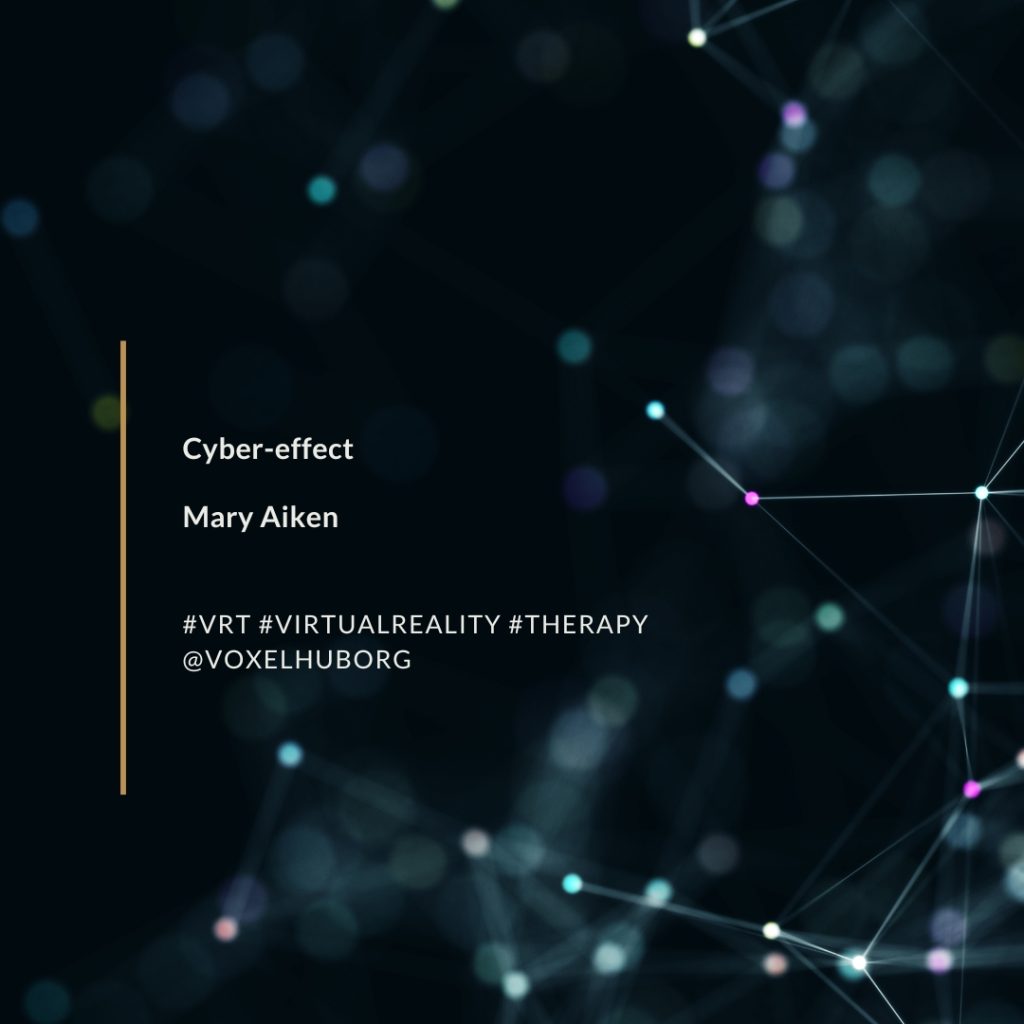
Cyber-effect – ..”.one thing that I have observed over and over again is that human behaviour is often amplified and accelerated online by what I believe to be an almost predictable mathematical multiplier, the cyber effect, the E=mc2 of this century.” – Mary Aiken, forensic cyberpsychologist, “The Cyber-Effect”, 2016
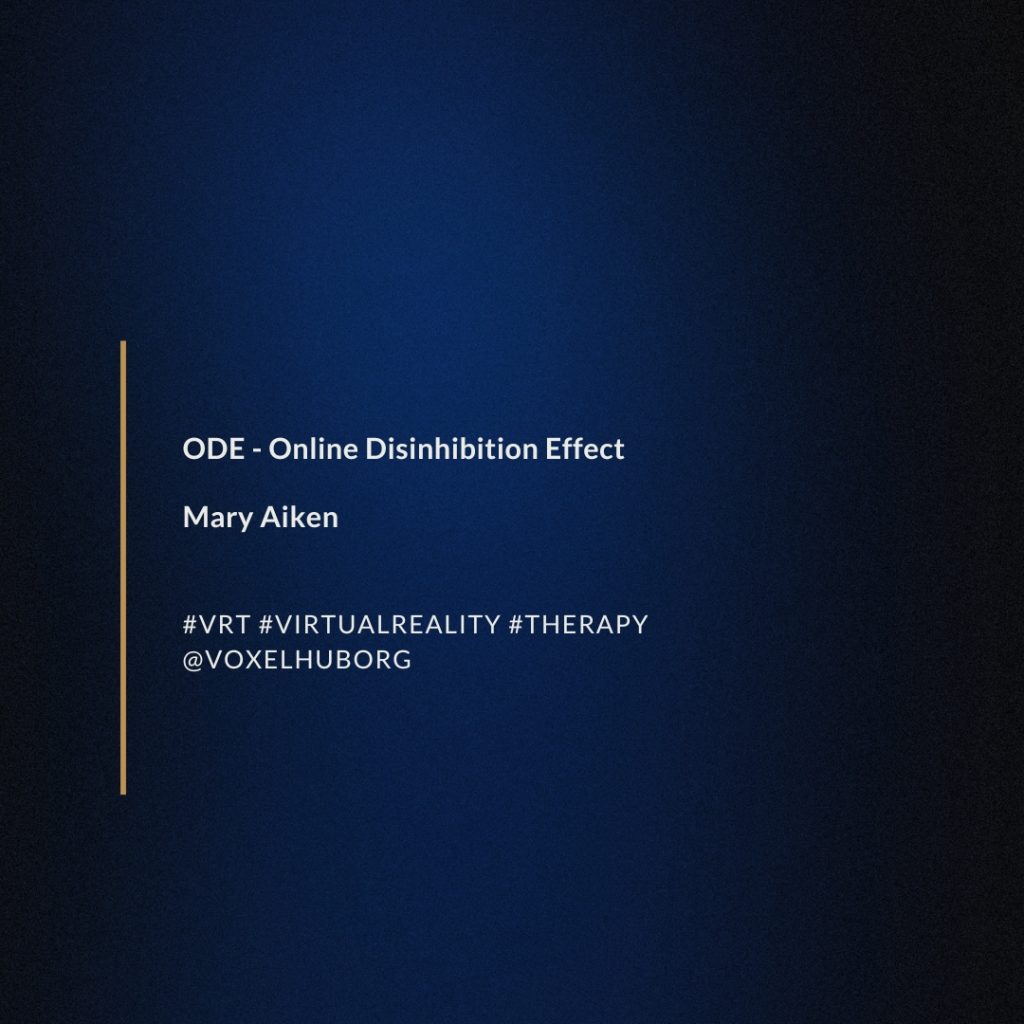
ODE – “Due to online disinhibition effect (ODE), individuals can be bolder, less inhibited, and judgement-impaired. Almost as if they were drunk. And in this less-inhibited state, like-minded people can find one another instantly and easily under a cloak of anonymity, which results in another effect: online syndication.” – Mary Aiken, forensic cyberpsychologist, “The Cyber-Effect”, 2016
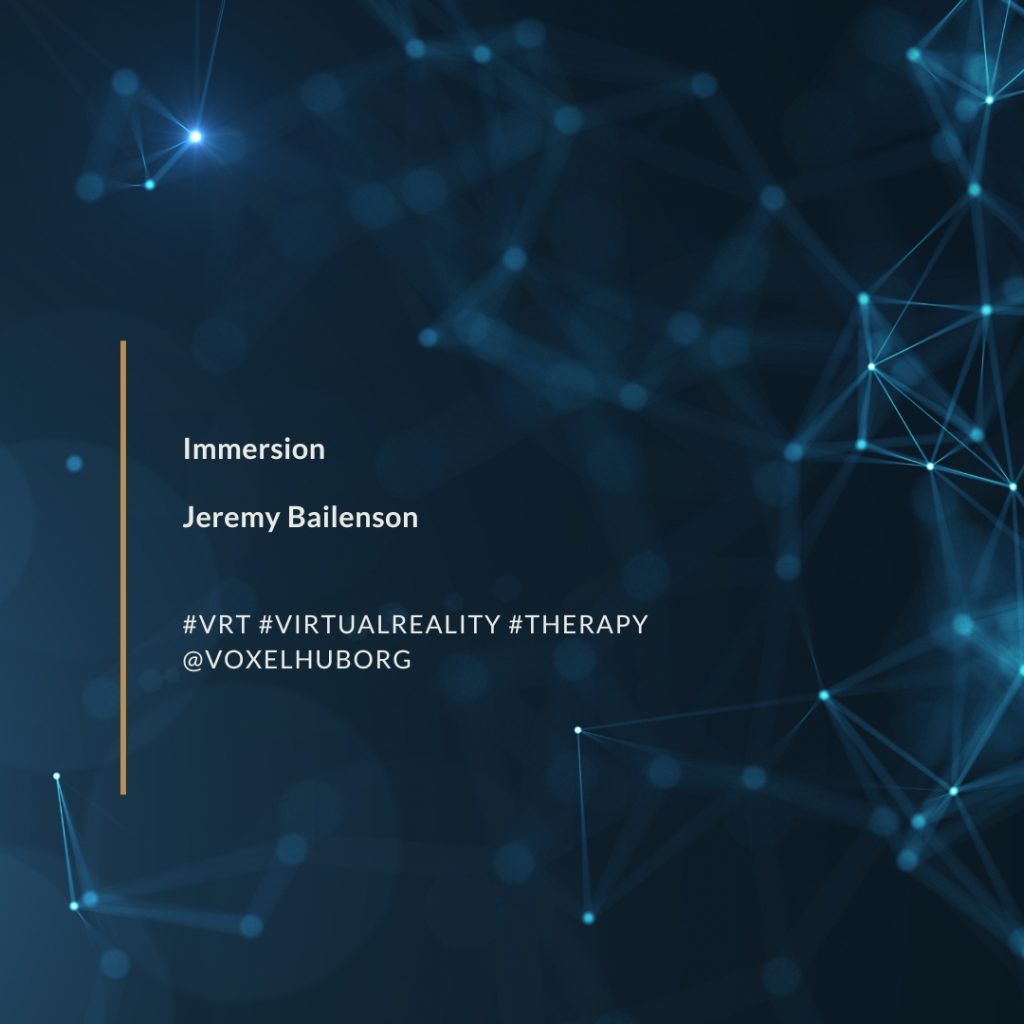
Immersion – The sensation of “being there” in VR, especially when it is seamless. “When it happens, your motor and perceptual systems interact with the virtual world in a manner similar to how they do in the physical world. Consequently, a VR experience is often better understood not as a media experience but as an actual experience, with the attendant results for our behaviour.” – Jeremy Bailenson, “Experience on Demand. What Virtual Reality Is, How It Works and What It Can Do”, 2018
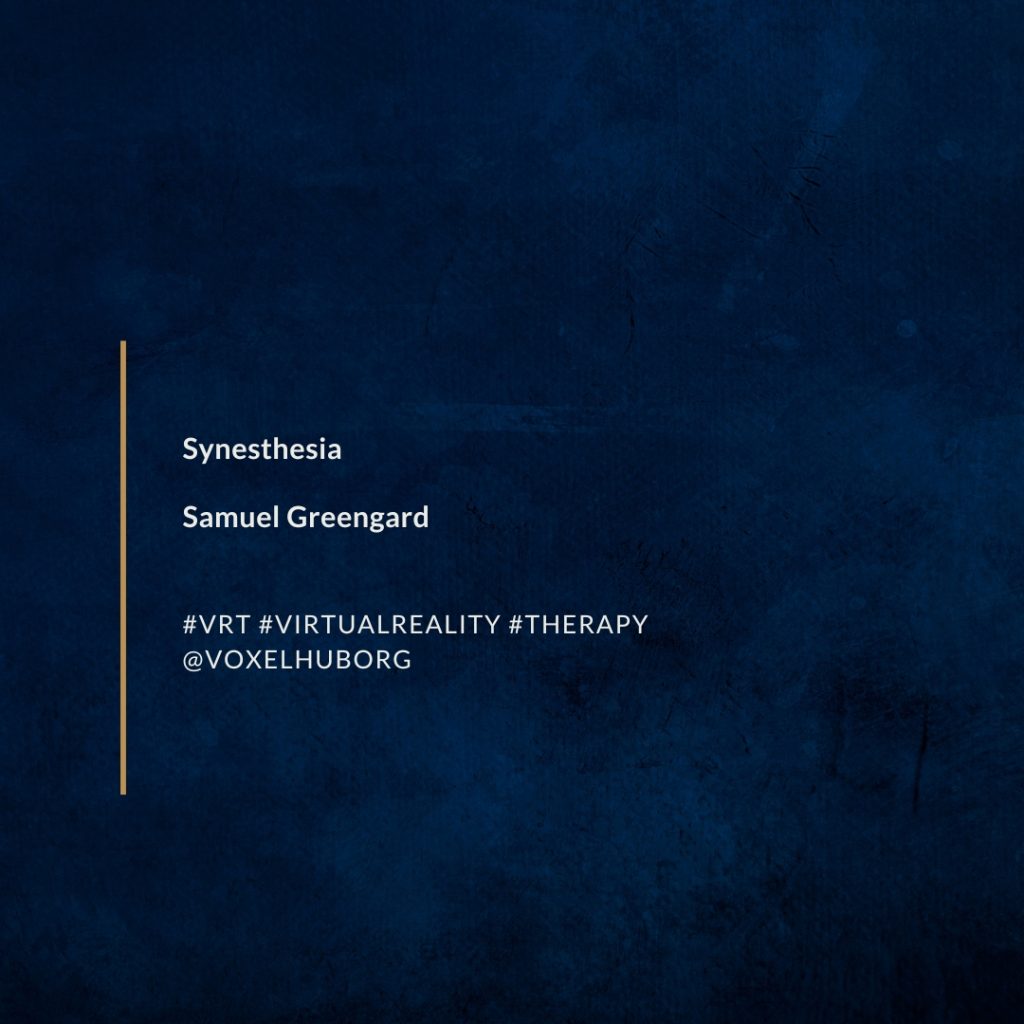
Synesthesia – “The result is a new and different type of reality that extends beyond the limitations of human perception. In some cases, it may lead to synesthesia, a process where the right combination of electronically generated signals tricks the mind into believing parts of the body have been touched or stimulated – or some realistic seeming action or event has taken place.” Samuel Greengard, “Virtual Reality”, 2019
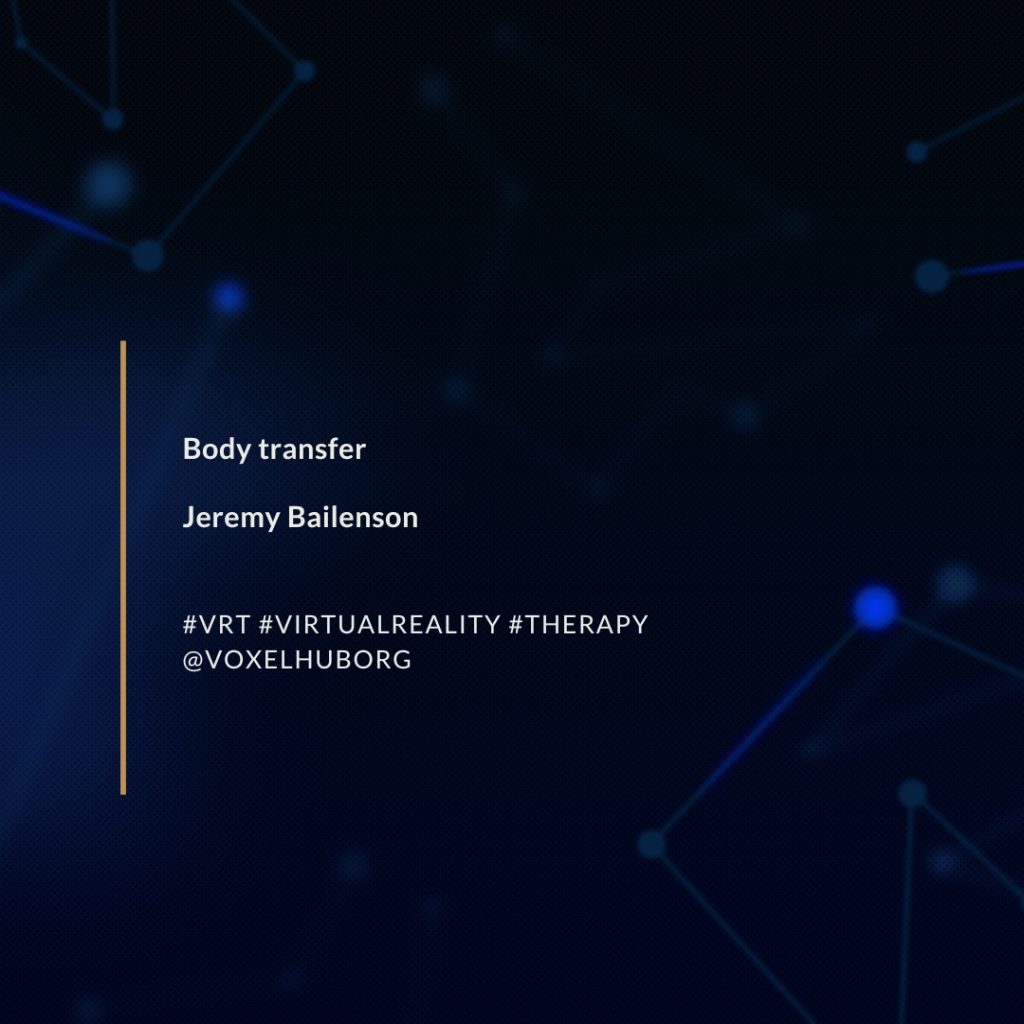
Body transfer – “…if someone sees his avatar get lightly poked with a stick, and also physically feels his chest getting poked synchronously, the avatar is treated as the self. People “transfer” their consciousness into it, according to dozens of studies. This mirror technique is now a fairly commonplace one – neuroscientists call it “body transfer”. People embodying avatars with three arms needed only 5 minutes to learn to use all three virtual limbs. People embodying avatars of cows experienced their pain.” – Jeremy Bailenson, “Experience on Demand. What Virtual Reality Is, How It Works and What It Can Do”, 2018
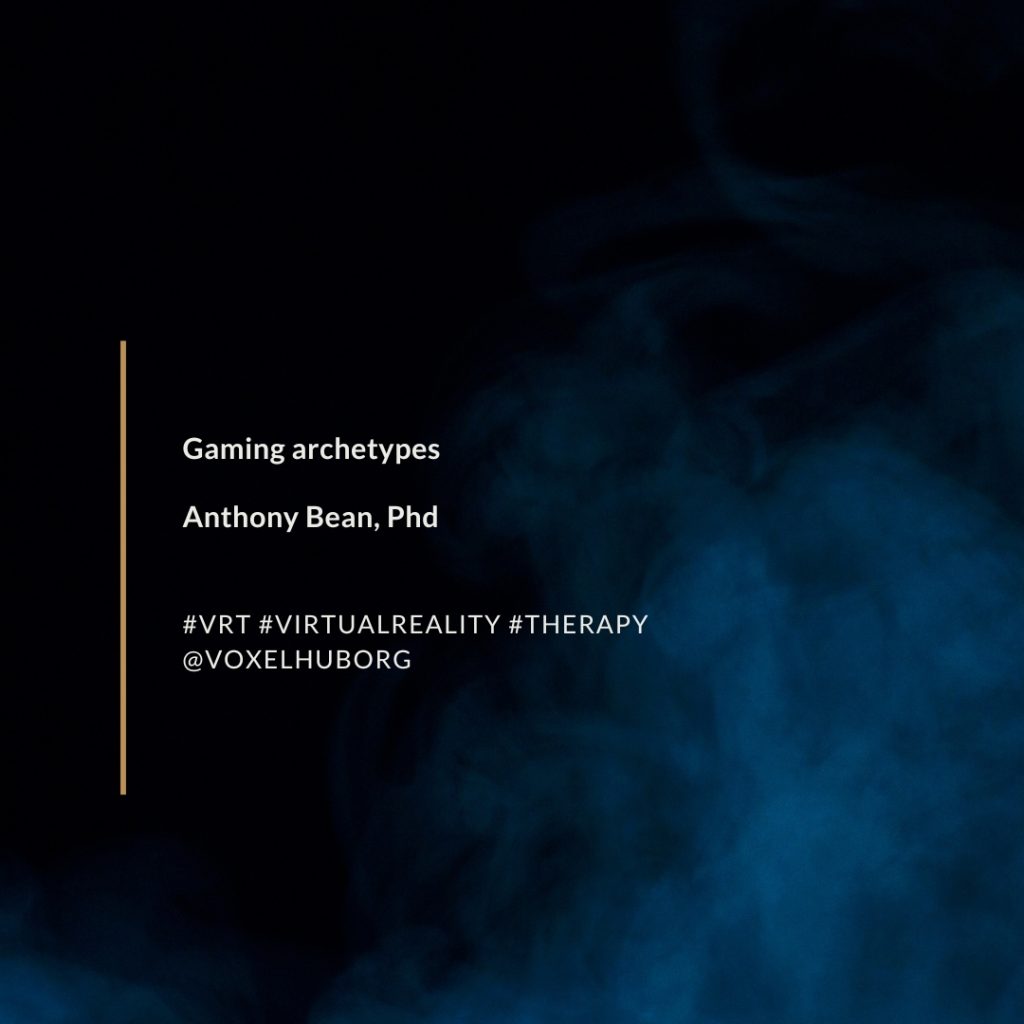
- Gaming archetypes – We can work with gaming archetypes (images with universal meanings) and heroic journeys: orphan,
- warrior,
- healer,
- ranger,
- rogue,
- spellcaster,
- engineer,
- athlete.
We can also tap into the analytics and insights from the gaming industry, such as quanticfoundry.com. – Anthony Bean, Pdh, geektherapeutics.com
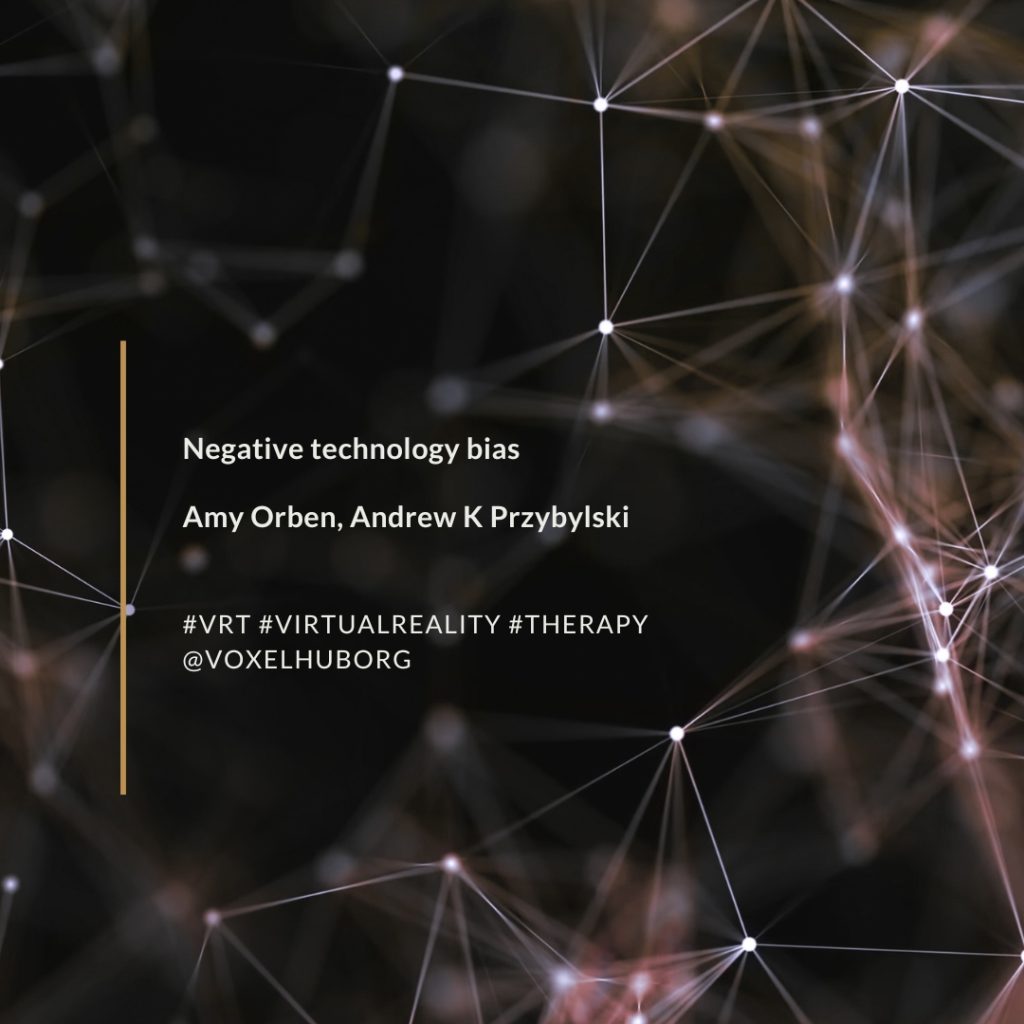
Negative technology bias – “The association we find between digital technology use and adolescent well-being is negative but small, explaining at most 0.4% of the variation in well-being.“ The association between adolescent well-being and digital technology use – Amy Orben, Andrew K Przybylski, 2019, DOI: 10.1038/s41562-018-0506-1
Let us know what psychological concepts are important in your work with Virtual Reality.

